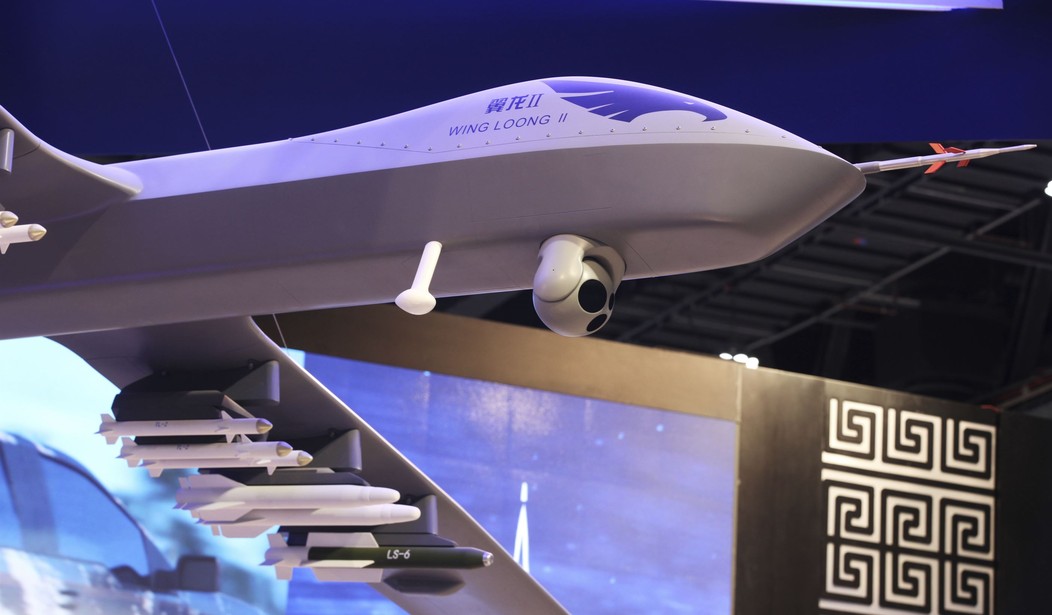There's an old saying in military circles that when people are discussing the conduct of war, amateurs study tactics while professionals study logistics. That's with good reason; every war in the history of mankind has come down to which side can keep the most beans and bullets moving forward to the troops. The American Civil War was lost by the breakaway Confederates mostly because they had no industrial base to speak of; there is an apocryphal story from late in that conflict, when President Lincoln visited General Grant and the two watched as thousands of wagons of supplies and herds of beef cattle crossed pontoon bridges over the James River, bound for Grant's forces at the sharp end of the stick. Lincoln had supposedly observed that he wished some recalcitrant members of Congress could see the Federals' display of logistical might, as it may change their view of the war; Grant replied that if he could bring one man to see the massive supply train, it would end the war at a stroke.
"Who is this man?" Lincoln is said to have asked.
"Robert E. Lee," Grant replied.
Military logistics today are much more high-tech than they were in 1865, of course, and the Russo-Ukraine war, as well as the various Middle Eastern scraps, has brought new prominence to drone warfare. Now Taiwan is seeking to build a fleet of drones to counter any hostile action by China, but they face logistical problems of their own.
As drones transform warfare in Ukraine and Gaza, Taiwan is accelerating efforts to build a fleet of them for its defenses.
But the island democracy has a problem: The overwhelming majority of the types of small, inexpensive drones that are having the greatest impact on battlefields are made in China, the very country that poses a threat to it.
The importance of affordable drones has been demonstrated most vividly in Ukraine, where the Ukrainian army has deployed waves of them to spy on enemy movements and deliver explosives, helping it to hold off Russia’s much larger and better-equipped army.
The number of drones Taiwan is seeking to obtain is not encouraging.
The island’s first steps have been tentative. Taiwan’s Defense Ministry has proposed spending roughly $175 million to acquire some 3,200 drones from private contractors over the next five years.
That number will need to increase rapidly. Ukraine burns through roughly 10,000 such drones a month, according to the Royal United Services Institute, a British security think tank.
It's not at all clear Taiwan can ramp up production that quickly or to that level.
See Related: US Lawmakers Arrive in Taiwan to Meet New President—Making Beijing Very Unhappy
Clear and Present Danger: China Buying Up Hundreds of Thousands of Acres Near US Military Bases
But there's a greater problem; many of the components Taiwan needs to produce a fleet of drones come from, yes, China.
Rejecting U.S.-made drones as too glitchy and expensive, Ukraine’s military started out relying heavily on off-the-shelf drones from Chinese drone giant Da-Jiang Innovations, or DJI. As its needs grew, Ukraine quickly spun up a domestic drone industry using imported Chinese parts.
Taiwan can’t replicate that approach. The risk is too high that Chinese suppliers could help the Chinese military to hack into any drones being used by Taiwan’s military. As an island, Taiwan could also easily find its drone supplies cut off by a blockade.
Instead, Taiwan has to find a way to build up a large stockpile that circumvents the Chinese supply chain.
That may be easier said than done.
There is a reason, of course, that this kind of thing is referred to as an "arms race." As the use of drones increases, the counter-drone technology will as well, and in the future, conflicts will very likely see drones fighting drones to establish superiority over the battlespace. The United States has for some time been using drones capable of delivering Hellfire missiles, including the vaunted and not-technically-admitted-to-exist Ginsu missile, to permanently revoke the birth certificates of bad guys. There's no reason to think Taiwan can't master the technology; they certainly have that capability.
It's the scale that's the problem. If they can't produce them in quantity, a quantity to match China's capability, then they may face a serious problem in the event of a conflict. And they cannot rely on their adversary for components; that's just asking for disaster.
It always comes down to logistics. It's all about logistics. Every war since the first two tribes of cavemen squared off and started chucking rocks at one another has, in essence, come down to which side has the most rocks. That's the problem facing Taiwan right now.














Join the conversation as a VIP Member